And so now it is certain. Alice Weidel will lead her far-right party into Germany’s general election next month.
She was overwhelmingly backed at the Alternative for Germany (AfD) conference and was greeted with a standing ovation.
Weidel will fight the election with a manifesto that follows a familiar pattern from other successful populist campaigns in Europe and beyond – contempt for mainstream politicians, anger over levels of irregular immigration, a desire to rein in the power of the European Union and dismay over the spread of so-called woke values.
“Thank you for your trust,” she told the audience.
“I am excited to lead our campaign. For our people, for our future.”
Who is Weidel?
Weidel is an unusual figure to lead a German hard right-wing party – a gay woman with a PhD in economics, a Sri Lankan partner, two children and a home in another country – she commutes from Switzerland.
Admittedly there is an awkward history – her grandfather was a Nazi judge appointed to the job personally by Adolf Hitler, but she has maintained that she did not know that fact growing up and has angrily distanced herself from accusations of racism.
Indeed, Ms Weidel maintains that her party is not on the far right, but is simply conservative.
And that is part of her attraction – she is perceived as uncompromising on the things that the AfD’s supporters hold dear – migration, Euroscepticism, the greatness of German culture – but she’s also perceived as more palatable to the wider public.
Or, at least, that’s the idea.
Thousands of protesters
Outside the sports centre, where the AfD’s convention was being held, thousands of protesters gathered to raise their fears that the country was going back to the politics of the past.
“They are fascists,” said a man called Gabriel, who was helping to blockade the road that ran past the venue.
“I don’t know if we have learnt anything in the past hundred years but now we do have to stand against fascism.”
Many of the delegates would angrily decry that label.
However, there was a rousing reception for Bjorn Hocke, a long-standing AfD politician who is from the right wing of this right-wing party.
His grouping, Der Flugel, was declared a suspected extremist organisation but he remained the party’s leader in Thuringia.
In 2019, a court ruled that it was not libellous to refer to Hocke as a fascist.
He has twice been found guilty of using Nazi slogans but last year, under his leadership, the AfD won the state election.
Emotions often run high when the AfD is involved. The protests here were, at times, heated.
Police had to clear the road in front of Ms Weidel’s car as some protesters sat down and others began to surround it.
Later, the party’s MPs were called to gather together for a sudden security briefing.
The sports centre where this meeting was held once hosted the World Sumo Wrestling Championship.
Here, the heavyweights were political, and the prize at stake was far more consequential.
Barring a quite astonishing movement in the polls, the AfD is unlikely to win the election next month, but the party may well come second with more than 20% of the vote.
Read more from Sky News:
Harry and Meghan visit LA fires evacuees
Ukraine says it captured North Korean soldiers
Sudanese army retakes city from rebels
That probably won’t equate to power – Germany’s major parties have all said they won’t go into coalition with the AfD – but it will mean momentum.
It will mean a loud voice in the Bundestag, the German federal parliament, and the ability to pressure the next chancellor into reflecting the opinions of the millions who vote for Ms Weidel’s vision.
Long term, if Ms Weidel can prove that her party is palatable, as well as popular, then she knows the political dam will one day break.
If enough people back the AfD, it will eventually become impossible to shun the party forever.






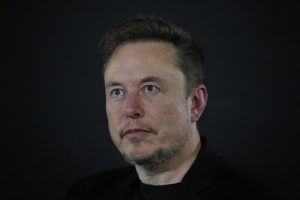




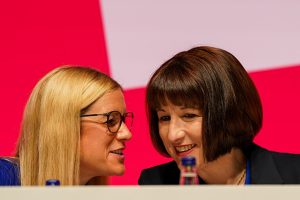

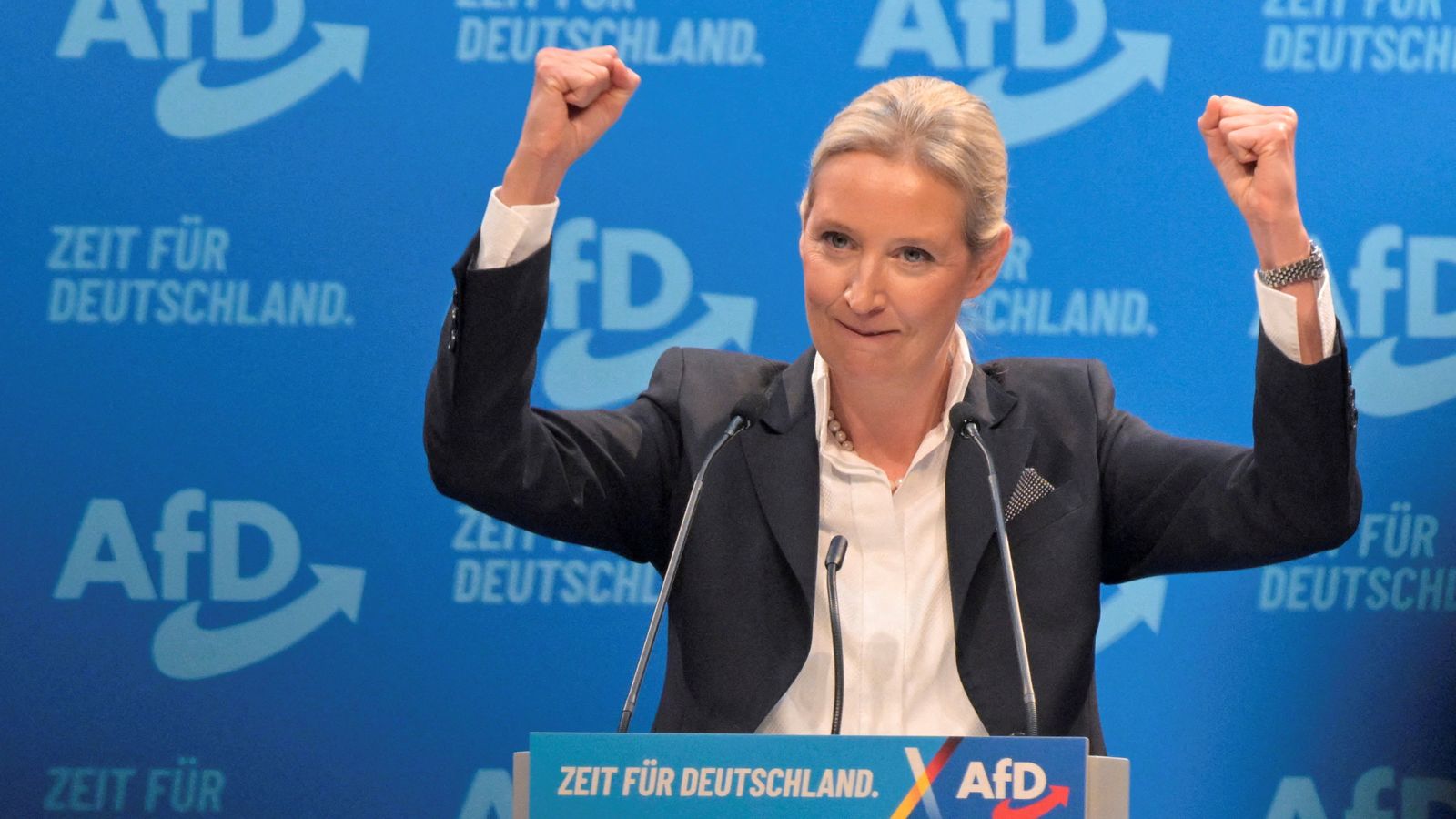






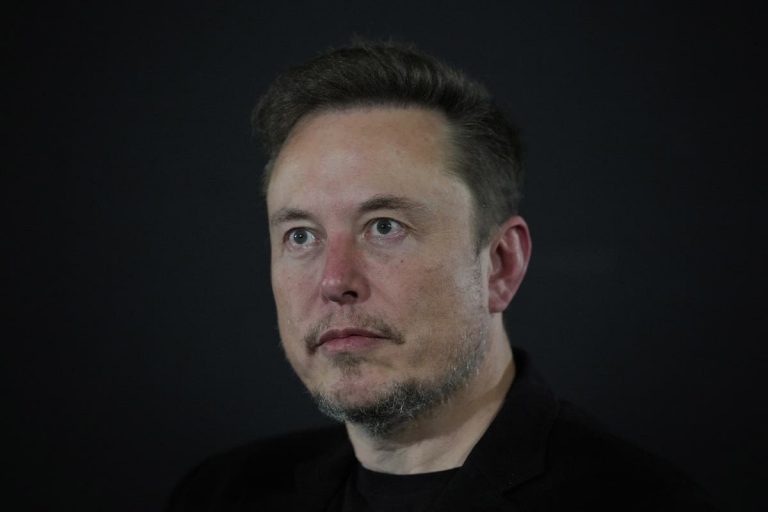
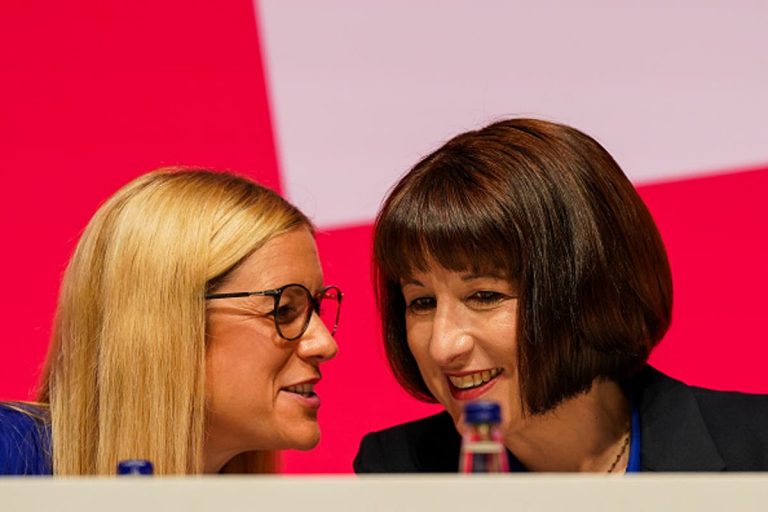
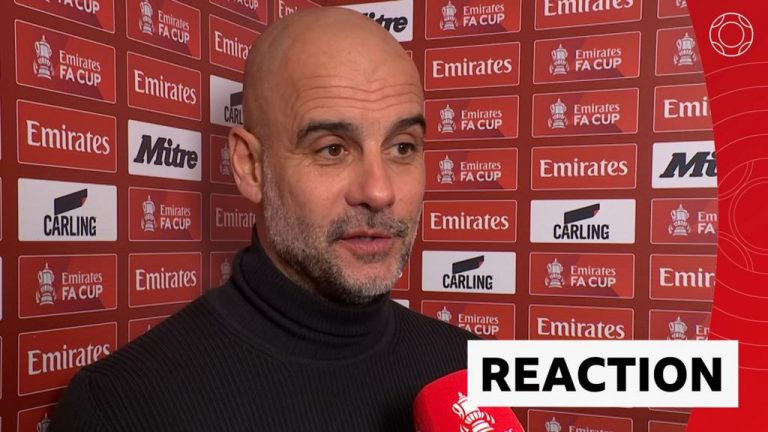







+ There are no comments
Add yours